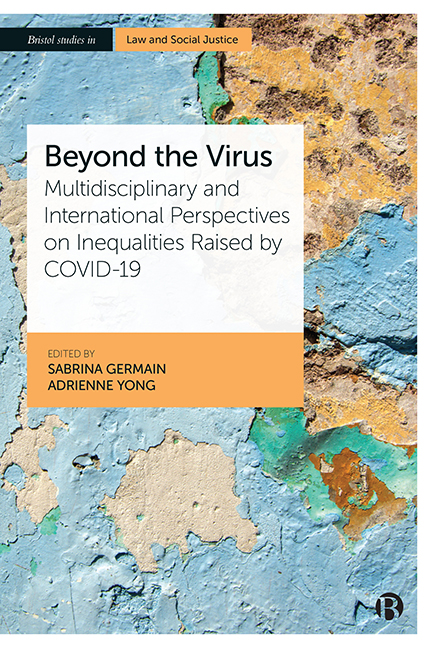 Beyond the Virus
Beyond the Virus 7 - Business as Usual: Inequality and Health Litigation during the COVID-19 Pandemic in Brazil
Published online by Cambridge University Press: 17 January 2024
Summary
Introduction
Inequality is a central feature of Brazilian society. Income, gender and race deeply divide the country’s population, biasing people’s access to basic welfare – including their healthcare. The country constitutionalized the right to health in 1988, creating a universal and free healthcare service, but access to health is not equal to all. Rural, non-white and poorer populations often lack access to basic care. This inequality is institutionalized through Brazil’s carceral system. The country holds the third-largest prison population in the world, with more than 700,000 people (Forum Brasileiro de Segurança Publica, 2021; World Prison Brief, nd) – most of whom are of non-white origin and from poor communities – confined in unhealthy and inhumane conditions (Ferreira et al, 2020).
Operating amid this unequal context, Brazil’s active judicial system has the power to define the constitutional content of the country’s healthcare policy by forcing the public administration to embrace more equal protection of the right to health. Through thousands of lawsuits filed each year against public-health authorities, the courts have overwhelmingly decided in favour of individuals seeking treatment. But this solicitude has a serious downside: by granting these one-off requests, often based solely on a single doctor’s prescription (Wang et al, 2020), courts undermine the redistributive goals of existing public policy. To make matters worse, unequal access to justice tends to entrench unequal access to healthcare, as health litigation tends to benefit those who have formal education, live in greater urban areas, and can obtain legal representation (Ferraz, 2021a). Once again, the carceral system adds a gloss, as imprisoned people disproportionately lack resources and opportunities to seek healthcare through the courts.
How has the COVID-19 pandemic affected this dire situation? In this chapter, I examine a key part of this question: the pandemic’s effect on judicial protection of the right to health for those incarcerated and free. In both cases, courts had serious incentives to take the pandemic seriously and consider its disproportionate impact on marginalized communities. For the judicial system, however, it has mostly been business as usual.
- Type
- Chapter
- Information
- Beyond the VirusMultidisciplinary and International Perspectives on Inequalities Raised by COVID-19, pp. 137 - 163Publisher: Bristol University PressPrint publication year: 2023
